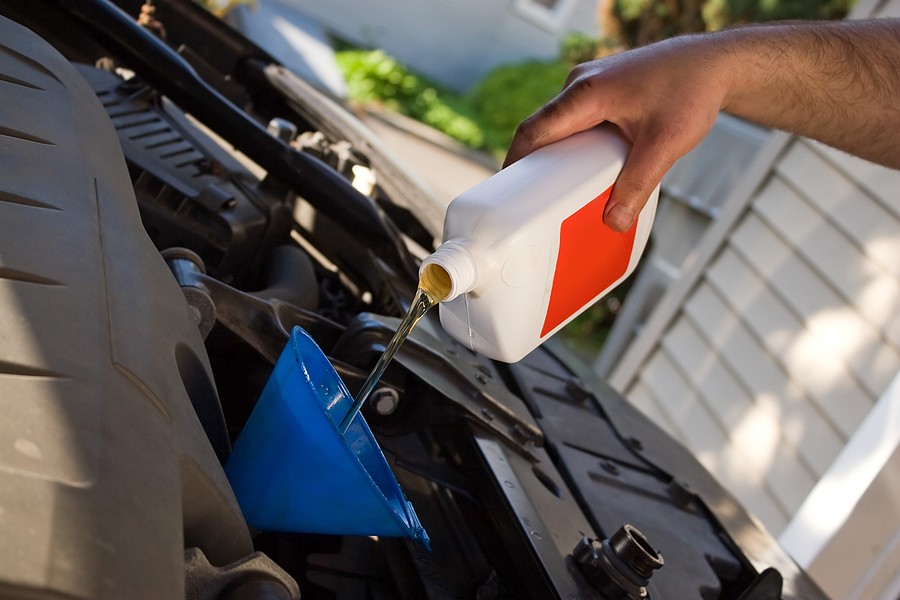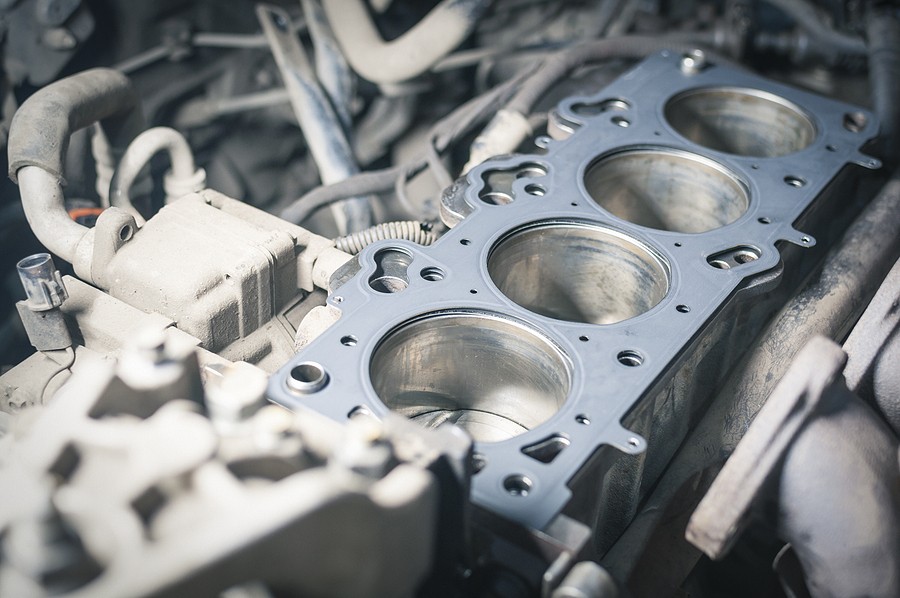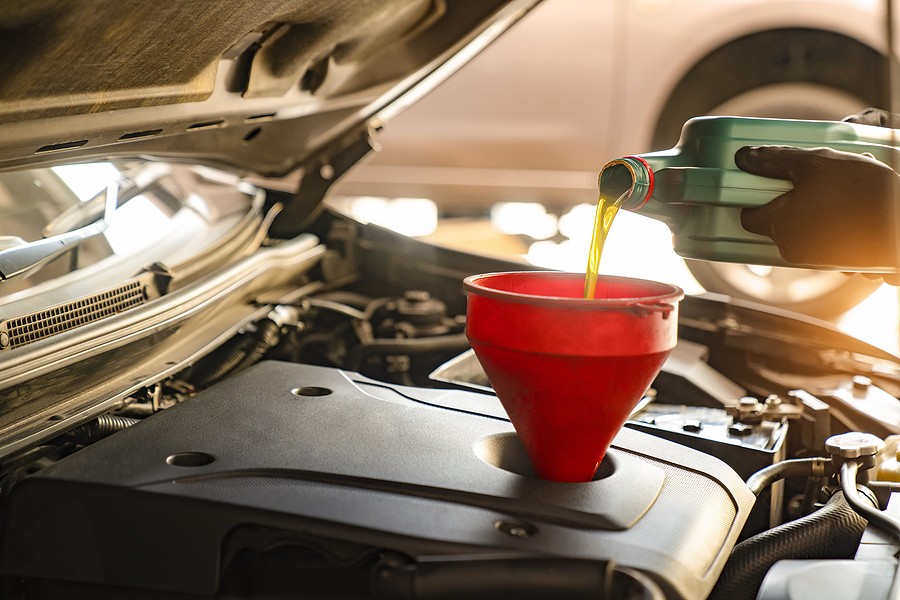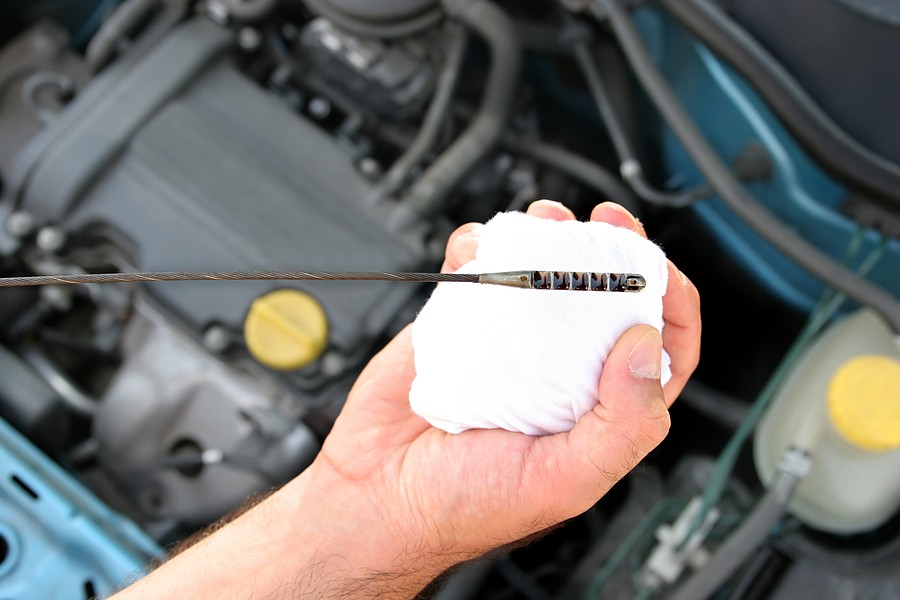If your coolant is leaking into oil, these are the most common causes:
- A blown head gasket
- I cracked the engine block
- A damaged intake
- A worn seal
- Although major failures
Coolant leaking into oil is a very common problem you might experience during the lifetime of your car. While each of those fluids is expected to run through specific designated pathways, there are some situations where these pathways can cross and cause internal problems.
Every driver must understand what must be done to avoid dealing with the situation where your coolant leaks into the oil. Simply mixing oil with coolant can lead to significant issues in the engine that might result in engine overheating, which could lead to self-destruction.
This article provides detailed guidance that helps you understand everything that could happen when you get your coolant mixed with oil, along with the potential symptoms and solutions. It also highlights some important future recommendations for preventing this problem from happening.
Coolant and oil systems overview
Before we dive into the details of situations where coolant is leaking into oil, you must understand the purpose of each of those fluids and what could happen when they get mixed.
Coolant is responsible for cooling down the engine, and fluid runs around the engine when the engine temperature exceeds a maximum threshold. The coolants must be at the optimum quantity and quality for your vehicle to operate properly and avoid overheating.
On the other hand, oil is responsible for lubricating the internal metal components in your engine. Without this lubrication, your vehicle can deal with internal friction that could increase the engine temperature, eventually leading to overheating.
While it's important to have both coolant and oil at the optimum level in your car, one of the things that you need to avoid is getting those two fluids mixed. When this happens, they lose their original characteristics that help them do the right job and help prevent engine overheating.

Causes of coolant leaking into oil
Now you have a general overview of the purpose of oil and coolant in your car and that mixing those fluids is never a good idea. The next step is to understand the main causes that could lead to this problem so you can avoid them.
The following list provides you with the most common causes for coolant leaking into oil:
1. Blown head gaskets
The first and most government calls for getting coolant mixed with oil is when you have a blown head gasket. The head gasket has thin components on top of the cylinders responsible for preventing any levels from getting inside the engine and any hot gases from leaving the cylinders toward the other engine components.
When the head gasket gets damaged, it allows for many problems, including mixing the oil with In that case, it is important that you address the problem as soon as possible and replace the head gasket when it happens and when it's the cause of getting the coolant mixed with oil.
2. Cracked engine block
Another potential reason for coolant leaking into oil is when you have a cracked engine block. The engine block is sealed properly to avoid gas leaks or fluids from some paths toward others.
It's not surprising to the illustrations that the engine block gets cracked because of age or external reasons. In that case, it's not surprising to see some of the fluids mixed cause internal problems in your engine.
3. Faulty intake
The engine is also connected to several intakes, allowing fuel and air to get inside the cylinders whenever the engine is ready for combustion. Those intakes can also get faulty, resulting in many problems, including mixing the coolant with oil.
4. Worn seals
Finally, a more hard-to-detect reason for getting your coolant mixed with oil is when you have worn seals. Unfortunately, you can't detect this unless you consult your mechanic and have him thoroughly inspect where these broken seals are so he can fix them.

Signs of coolant leaking into the oil
Since it's very dangerous to allow coolant to get mixed with oil, every driver must understand the main signs of coolant leaking into the oil. This week, address the problem immediately and have your mechanic fix it before things get out of hand.
The following list provides you with the most common symptoms of coolant leaking into oil:
1. Milky oil
The first and most obvious symptom indicating coolant is leaking into oil is when you have Milky oil. If you open the oil cap and look at it, you'll see some Milky substance, indicating that something wrong got mixed with oil, which is the coolant.
2. Engine overheating
Another general symptom indicating that coolant is leaking into oil is when you have an engine overheating. Typically, the oil and the coolant, as mentioned earlier, are responsible for preventing all engine overheating.
When they get mixed, they cannot do their job because they lose their main characteristics, and that's why you'll see that the engine will start overheating suddenly.
Remember that engine overheating is a problem that could be linked to many other issues. Therefore, you cannot immediately assume that it's coolant and leaking into oil causing the problem, and you must make an additional diagnosis to confirm.
3. Visible white exhaust smoke
When the coolant gets mixed with oil, you'll notice the exhaust smoke has a white collar. Typically, the exhaust smoke shouldn't have a visible color unless you're driving a very old car or you're setting up your vehicle in the morning.
4. Reduction in coolant level
Finally, when the corn gets mixed with oil, it might result in a coolant leak that produces the coolant level in your vehicle. Therefore, one quick thing you could do is perform a visual inspection and look at the reservoir of the column to see if the level of the column is dropping.

Potential solutions for mixed oil and coolant
Once you confirm that your vehicle is dealing with coolant leaking into oil, the next step is to understand what needs to be done to fix the problem as soon as possible. The more you wait on the problem, the harder it gets to fix it, and the more repair costs will cost you.
In general, you need to identify the main source of the problem in your car to fix the problem. For example, if you confirm that it's weak seals that are broken and allowing coolant to leak into the oil, then you have to fix these seals.
Similarly, if you're a mechanic confirmed that it's a blown head gasket that's causing the problem, then you have to replace it immediately. Unfortunately, there is a very limited chance of fixing their blown head gasket because it will, typically, be completely damaged.
Therefore, once your mechanic identifies the root culprit and confirms it's causing the problem, you must address it immediately. Remember that sometimes it might be a combination of different cultures that you must do together.

Future preventions for coolant leaking into oil
Since coolant leaking into oil is never a good situation, every driver must understand some of the recommendations from experts that could help prevent the problem from happening in the first place.
Below is the general list of recommendations that could help reduce the chances of your coolant leaking into oil. This will not be the only solution, and you might deal with the problem in the future if your vehicle gets old.
- Keep up with regular maintenance.
- Perform a conflux when needed.
- Check on the different components and replace the faulty ones
- Never ignore overheating

Coolant leaking into oil: Conclusion
Coolant leaking into oil is never a good situation, and it means that the two most important fluids in your car get mixed and lose their characteristics, which means that they can not help cool down the engine.
This article provides detailed guidance to help you understand what could go wrong when your coolant gets mixed with oil, different symptoms, solutions, potential repairs, and recommendations for future prevention.
As mentioned in this article, you must address the problem immediately to avoid dealing with costly repairs.
If you're interested in similar posts, we highly encourage you to visit our blog by clicking here.



